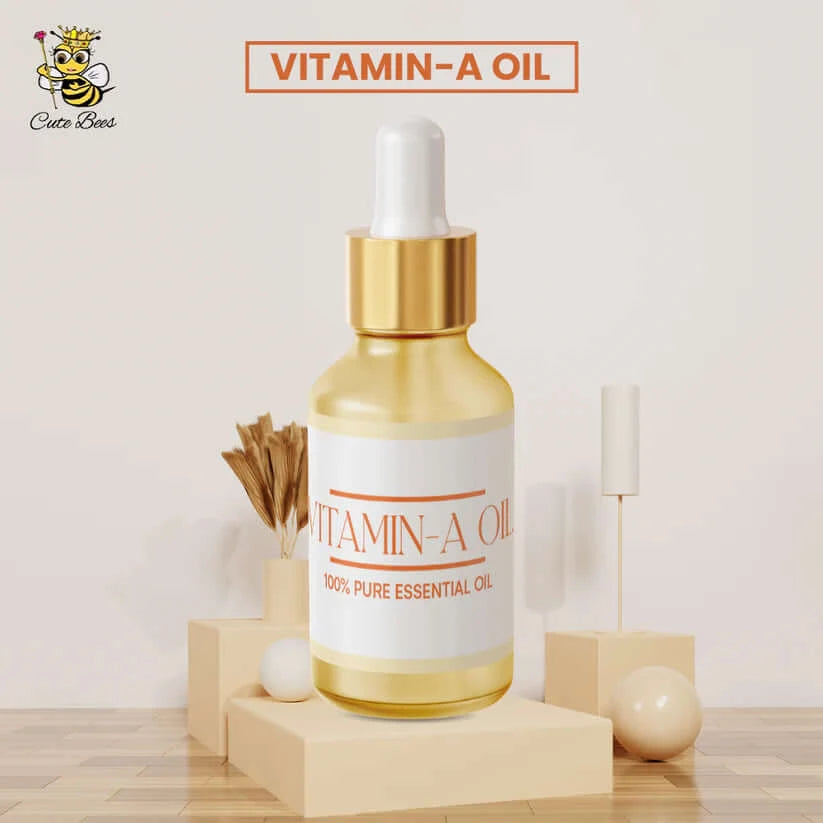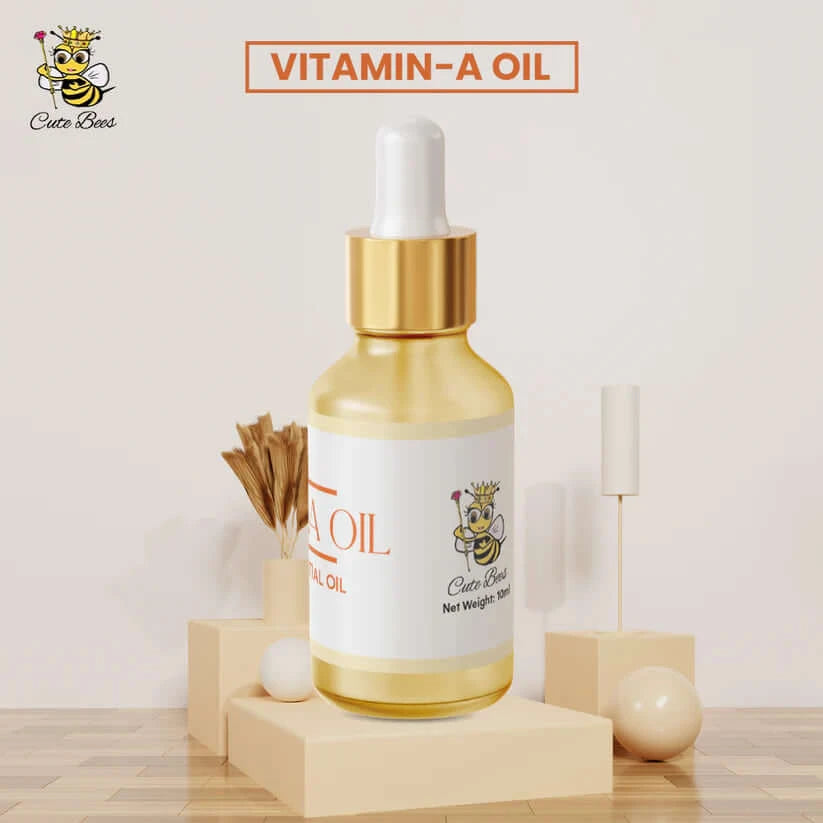My Store
Vitamin-A Oil / 10-Ml
Couldn't load pickup availability
WHAT VITAMIN A DOES FOR SKIN: ADDITIONAL BENEFITS
As a powerful antioxidant, vitamin A does wonders in preventing and repairing collagen damage from UV exposure. But it does quite a bit more as well.
Vitamin A, or retinol, remains one of the most well known nutrients for healthy skin. It’s been in use for treating acne and psoriasis since the 1980s, and works to decrease sebaceous gland activity that promotes excessive oils. It also treats rough, dry skin, which is one of the major signs of vitamin A deficiency - this often shows up as rough, raised bumps on the back of the arms, a condition sometimes called "chicken skin," known officially as keratosis pilaris.
Vitamin A binds with the receptor sites on skin cells, which signal genes to turn them on and off. That’s how prescription topical retinoids like Retin-A and Accutane work to treat acne, by telling the genes controlling sebaceous glands to stop producing oil.
Rosacea is also treated with vitamin A, along with dry and irritated skin. Again, this vitamin is useful for treating keratosis pilaris, eczema, calluses, and many other skin problems.
Benefits Of Vitamin A For Skin
1. Controls Acne
When your skin sheds dead cells in excessive amounts, the sebum in your skin pores traps the dead skin cells and creates a blockage in your skin pores. When bacteria infect such clogged skin pores, it results in acne. Vitamin A slows down the production of dead skin cells as it contains antioxidants that prevent cell damage. It also helps in controlling overproduction of sebum, thus preventing acne formation by keeping your skin pores clear.
2. Fights Wrinkles & Slows Down Aging
Wrinkles form when the collagen in your skin gets damaged due to different factors such as UV exposure, heat, dehydration, etc. Vitamin A helps to smoothen the skin and makes it wrinkle-free by stimulating collagen production[2]. Collagen is essential in strengthening your skin by filling in the fine lines on your skin surface.
3. Promotes Healthy Growth Of Skin Tissue
Vitamin A stimulates the production of fibroblast cells, which are essential in the development of the firm and healthy layers of your skin tissue. Lack of vitamin A can cause weakened skin tissue that is susceptible to external damage. It also results in different skin problems such as slow healing of wounds, dryness, aging, etc.
4. Shields Your Skin Against UV Damage
Vitamin A provides natural protection to your skin by absorbing UV radiation. It also helps in preventing pigmentation and redness caused by overexposure to the sun. However, it is recommended to use it in combination with vitamin C to prevent photosensitivity.
5. Defends Your Skin Against Infections
Your skin acts as the first line of defense against infection-causing microorganisms. Vitamin A boosts cell production, which strengthens your skin barrier against microbial infections. It also prevents skin damage from harmful irritants and other external factors.
6. Evens Your Skin Tone & Enhances Glow
Vitamin A helps in lightening the dark spots on your skin caused by pigmentation and suntan. Retinoids control the melanin production in your skin by blocking the enzymes responsible for it. Thus, vitamin A imparts even skin tone with enhanced complexion.
Share




